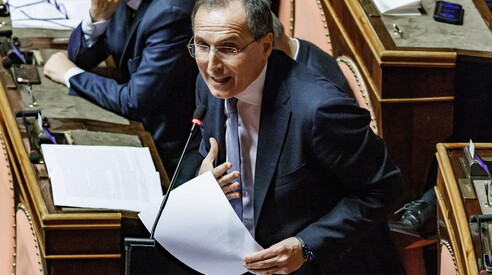When Francesco Boccia betrayed science


In a letter to Rep. he accuses the right of betraying the scientific method, but the leader of the Democratic Party senators was the protagonist of academic plagiarism in a university competition.
The Democratic Party's senatorial leader, Francesco Boccia, published a letter in Repubblica titled: "When Politics Betrays Science." The text is a fair and necessary criticism of the Meloni government for appointing skeptical doctors to the vaccine commission and, more generally, for the right's anti-scientific approach to various issues: "Without trust in science, there is no future for democracy," Boccia concludes.
The Democratic Party is right to raise the banner of the scientific method, but perhaps it would be better off finding another champion. Boccia was involved in an episode that was, to say the least, unpleasant: scientific plagiarism. The former minister won a competition for an associate professorship at the University of Molise by submitting a scientific article, published under his own name in a series by Liuc of Castellanza. However, the article was a fusion of excerpts from works by other authors, whose sources were not cited.
Caught red-handed, Boccia defended himself first awkwardly and then aggressively: first he amended his CV to describe the incriminating article as "recommended reading," then he claimed he had sent the list of publications carelessly, and finally he filed a defamation suit against a university professor (later dismissed) who had continued to raise the issue of plagiarism. Ultimately, LIUC University declared Boccia's article "retracted ," the procedure generally used in cases of scientific fraud. The title of Boccia's letter to Rep.—"When politics betrays science"—has a bitter, autobiographical flavour.
More on these topics:
ilmanifesto





